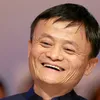Will Alibaba break its own record this 11.11 global shopping fest? And where is Jack Ma?
Alibaba 11.11 global shopping festival, also popularly known as the Singles' Day, is no less than a circus. But the real hero is online shopping itself.
It is by far the greatest show on Earth. The Alibaba 11.11 global shopping festival, popularly known as Singles' Day, is no less than a circus. Amidst all the song and dance, deals and discounts under the big tent of ecommerce, the real hero is online shopping itself.
On the eve of the annual celebration, which is held every year on November 11, Alibaba Group Holding Limited announced that more than 64 brands achieved over RMB 100 million in pre-order GMV in sales, twice the number of brands compared to last year.
Will it surpass last year's $30.8 billion sale figure?

Billed as the world’s largest 24-hour online shopping event in terms of GMV, the 11.11 event has over 200,000 brands participating with more than a million new products on offer. Over 500 million users are expected to participate in this year’s festival – about 100 million more than last year.
In 2018, the company had record sales in terms of GMV (Gross Merchandise Volume) generating $30.8 billion (RMB 213.5 billion). As the annual celebration heads into its second decade, the focus this year is on “new consumption,” “new business” and green action.
According to a company release, "The goal is to support the Chinese consumer lifestyle upgrade and empower brands and SMEs across the world to tap into the China market."

Daniel Zhang
The 24-hour-long online shopping extravaganza will also be marked by a gala entertainment in Shanghai where top US pop star Taylor Swift, among a host of other local celebrities, is expected to be performing.
Interestingly, this year, as the $486 billion Chinese online retail giant gets set for the 11th Singles' Day without its maverick Founder Jack Ma at the helm (he resigned as the Chairman in September this year), all eyes are on the present Chairman and CEO Daniel Zhang to take the group to new record breaking heights at a time when the Chinese economy is on a slowdown and the ongoing trade war with the US threatening to derail it further.
But it appears the Hangzhou-headquartered retail giant will continue to reign supreme especially when one compares the American equivalent Black Friday shopping frenzy or closer home, Flipkart's Big Billion Day Diwali sale.

Alibaba headquarters all decked up for the festival
Black Friday weekend had reportedly generated a total of $14.05 billion in online sales for 4,500 US online retailers over four days.
During India's Diwali online shopping festival, sales split the e-tailer market share between Amazon India and Flipkart. Their combined market share was 90 percent in terms of merchandise volume, with Flipkart leading at 60-62 percent and Amazon India coming in at 28-30 percent.
Both the competitors sold a record Rs 19,000 crore of goods in 2019, a growth of 30 percent over last year, according to reports.
Interestingly, the Bengaluru-based Himalaya Drug Company and Amrut are two of the few Indian brands popular on Alibaba's TMall, its B2C arm that imports global products for domestic customers.

Even as the group finishes off the last minute tightening of screws to avoid any tech glitches (up until now, the ecommerce site has never crashed), there are a number of lessons for the Indian ecommerce sector to learn from the Alibaba experiment that has gone on to become such a huge success.
And while all eyes will be on the gala opening tomorrow to see whether or not Jack Ma makes an appearance on stage, there is no doubt that he is the true ringmaster of this greatest show on Earth.
YourStory is in Hangzhou, the headquarters of Alibaba group, and will be bringing you all the backstory of this great sale. As an aside, we hear that Jack Ma, since his retirement, has been working a lot with tech development in Africa.
He had recently adopted an African elephant and named her new-born calf Hangzhou.
Watch this space for more stories from Hangzhou.
(Edited by Saheli Sen Gupta)










